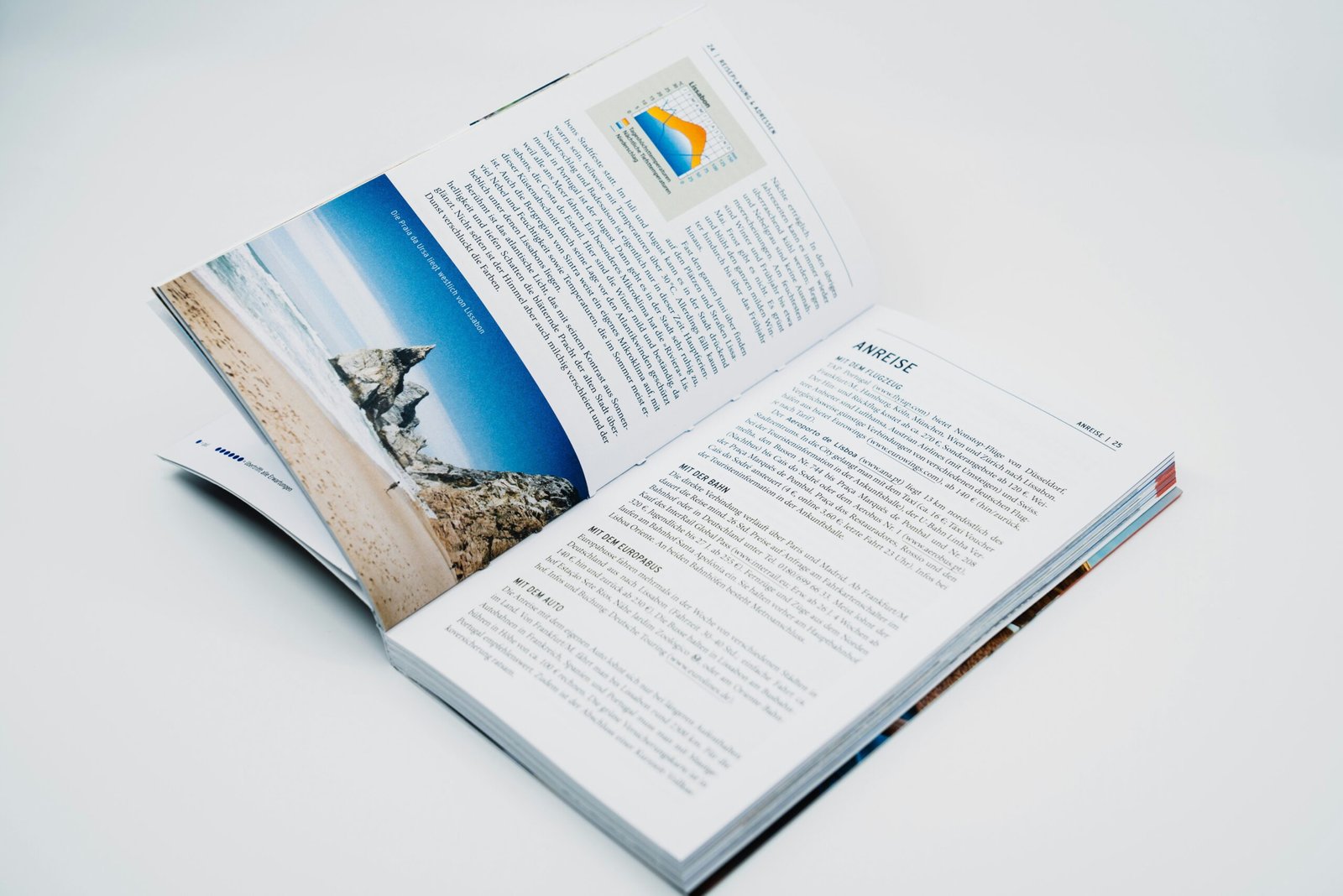Introduction to Language Barriers in Morocco
Morocco is a nation characterized by its rich tapestry of cultures, traditions, and languages. The linguistic landscape in Morocco is predominantly shaped by Arabic, Berber (Amazigh), and French, each of which plays a significant role in the everyday lives of both locals and visitors. This multicultural environment, while vibrant, presents substantial communication challenges, often manifesting as language barriers.
Arabic, particularly Moroccan Arabic or Darija, is the most widely spoken language throughout the country. However, its regional dialects can vary greatly, complicating communication even among native speakers. Berber languages, spoken primarily in rural areas, reflect the historical and cultural heritage of the Berber people and add another layer to Morocco’s diverse linguistic identity. French, a remnant of the colonial period, serves as a crucial language in education, business, and government. It is often used in urban centers, making it a common second language for many Moroccans. Yet, this tri-lingual setting can pose challenges for newcomers who may not be familiar with these languages.
Visitors to Morocco may find themselves grappling with these language barriers, particularly in less tourist-centric areas where English is not widely spoken. Additionally, the complexity of navigating interactions among Arabic, Berber, and French speakers can lead to misunderstandings, frustration, and discomfort. Understanding these dynamics is essential for fostering effective communication and building connections with the local community. Consequently, a foundational knowledge of basic Arabic phrases and French expressions can significantly enhance one’s experience in the country, enabling travelers to engage more fully with the distinct Moroccan culture. Awareness of these language barriers is thus an important step in overcoming them, paving the way for a more enriching journey.
Understanding the Importance of Arabic and French
Morocco’s linguistic landscape is predominantly shaped by Arabic and French, reflecting the country’s rich history and cultural diversity. Arabic, the official language, is not only used in government and education but also serves as a medium for cultural identity and expression among Moroccans. The classical form of Arabic is utilized in formal settings, whereas Darija, a local dialect, is commonly spoken in everyday interactions. This highlights the significance of understanding Arabic, as it allows for deeper engagement with local customs, literature, and traditions.
On the other hand, French plays a crucial role in Morocco due to the historical context of French colonial rule, which lasted from 1912 until the mid-20th century. During this period, French was introduced to various sectors, including administration, business, and education. Consequently, French has become a major language of commerce and academia, making it essential for anyone looking to navigate the modern Moroccan landscape. Proficiency in French can significantly enhance one’s ability to connect with local professionals and access a broader range of services.
Moreover, mastering both Arabic and French can offer tremendous benefits, especially for expatriates and travelers. Those who can communicate effectively in these languages generally experience a richer cultural immersion and develop stronger relationships with the locals. Language skills can also facilitate better negotiation in business settings and lead to more meaningful interactions in social situations. Thus, being acquainted with both Arabic and French is not merely an advantage but an essential part of embracing the Moroccan experience fully.
Basic Arabic Phrases for Travelers
When traveling in Morocco, knowing basic Arabic phrases can significantly enhance your experience and interactions. Arabic is one of the official languages spoken in the country, and familiarizing yourself with essential expressions can help bridge the communication gap. Below is a collection of useful phrases categorized into greetings, common questions, and simple expressions that are fundamental for any traveler.
Greetings
Starting with greetings, basic interactions set the tone for positive encounters. A simple “As-salamu alaykum” (السلام عليكم) means “Peace be upon you,” which can be responded to with “Wa alaykum as-salam” (وعليكم السلام). These greetings embody respect and politeness in Moroccan culture. Another common phrase is “Sabah al-khayr” (صباح الخير) for “Good morning” and “Masa’ al-khayr” (مساء الخير) for “Good evening.” Practicing these greetings can create a welcoming atmosphere during your travels.
Common Questions
Asking questions is vital for gathering information and navigating your surroundings. Consider phrases like “Kam thaman?” (كم الثمن؟) meaning “How much is this?” or “Ayna…?” (أين…؟) which translates to “Where is…?” Knowing these questions can help when shopping or seeking directions. Additionally, asking “Hal tatakallam al-ingiliziyya?” (هل تتكلم الإنجليزية؟) can clarify language capabilities, ensuring effective communication with locals.
Simple Expressions
Simple expressions help in everyday interactions. Words such as “Shukran” (شكرا) meaning “Thank you” and “Afwan” (عفوا) for “You’re welcome” are essential in showing appreciation. To ask for assistance, “Min fadlak” (من فضلك) translates to “Please.” Mastering these expressions, along with understanding their pronunciation, can significantly enhance interactions with Moroccans.
In conclusion, incorporating these basic Arabic phrases into your travel repertoire can ease communication and foster connections with the local culture. From greetings to essential questions and common expressions, these phrases will contribute to a richer and more enjoyable travel experience in Morocco.
Essential French Expressions in Morocco
In Morocco, French is widely spoken alongside Arabic, especially in urban settings and areas frequented by tourists. Understanding essential French expressions can greatly enhance your experience and interactions while traveling through the country. Knowledge of basic phrases will not only aid communication but also demonstrate respect for the local culture.
When visiting shops, it is helpful to know phrases such as “Bonjour” (Hello) and “Merci” (Thank you). These simple greetings can create a friendly atmosphere, making shopkeepers more inclined to assist you. Additionally, understanding how to ask for prices is crucial; you can use the expression “Combien ça coûte?” (How much does it cost?) to inquire about items.
In dining situations, familiarizing yourself with restaurant-related vocabulary is essential. For instance, the expression “Je voudrais…” (I would like…) allows you to place orders confidently. It is also beneficial to know how to ask for recommendations with “Que recommandez-vous?” (What do you recommend?) This not only helps in selecting delicious Moroccan dishes but also engages the staff in a conversation.
When navigating public transportation, phrases like “Où est…?” (Where is…?) will be invaluable. By asking, “Où est la gare?” (Where is the train station?), you can easily find your way. Another useful phrase is “Un billet, s’il vous plaît” (A ticket, please), which is essential when purchasing tickets for buses or trains.
Overall, having a basic understanding of French will significantly ease communication in Morocco. The language plays a prominent role in urban life, reinforcing the necessity for travelers to familiarize themselves with essential expressions to navigate day-to-day interactions effectively.
Navigating Language Differences in Daily Life
Encountering language barriers can be a common challenge for those living in or visiting Morocco, where Arabic and French dominate everyday conversation. To facilitate smoother communication, it is essential to adopt several practical strategies that can help bridge the linguistic divide.
One of the most efficient tools to overcome language barriers is the use of translation applications. Modern smartphones come equipped with various apps that provide instant translations, allowing individuals to understand and convey messages in real-time. Popular applications, such as Google Translate, not only translate text but also offer voice recognition capabilities, which can be particularly useful in a bustling marketplace or during social gatherings. Familiarizing oneself with these apps beforehand can make interactions significantly more comfortable.
Another effective method to navigate language differences is the utilization of body language and visual aids. Non-verbal communication often transcends linguistic limitations; simple gestures, facial expressions, and pointing can convey a message even when language fails. For example, mimicking actions or using drawings to depict a need can stimulate understanding and foster connection, illustrating the importance of creativity in communication.
Moreover, engaging with bilingual locals can provide invaluable assistance in overcoming language challenges. People residing in tourist areas often have the capacity to switch between languages and can offer guidance and support to non-native speakers. Establishing rapport with these individuals not only aids in daily interactions but also enriches the travel experience, encouraging a deeper understanding of Moroccan culture.
In essence, employing a combination of translation technology, non-verbal cues, and the support of bilingual residents can greatly enhance the ability to navigate through language differences in Morocco, making daily life more manageable and enjoyable.
Cultural Nuances Behind Language Use
In Morocco, language is not merely a tool for communication; it is deeply intertwined with the cultural fabric of the nation. The country recognizes Arabic and French as prominent languages, each carrying profound implications reflective of Morocco’s rich history and diverse cultural landscape. Understanding these languages transcends mere vocabulary and grammar, as it encompasses respecting the nuances that shape social interactions and relationships.
Arabic, particularly in its Moroccan dialect, demonstrates the importance of local customs and traditions. Using Arabic, even in simple phrases, can convey respect and appreciation for the local culture. Conversely, French mirrors Morocco’s colonial past and its ongoing relationship with Western influences. The duality of these languages presents opportunities for foreigners to bridge cultural gaps. It is essential to recognize when to use each language—Arabic may be preferred in rural areas, while French often prevails in urban settings, especially in business and education.
Moreover, language reflects societal values, attitudes, and norms in Morocco. Employing local greetings and expressions when interacting with Moroccans can create a sense of rapport and understanding. For instance, using traditional greetings like “Salam” or “Bonjour” opens avenues for friendship and builds trust, ultimately enhancing interpersonal connections. Language use also varies between different social contexts, and being attuned to these subtleties can lead to a more enriching experience while navigating the local environment.
Ultimately, recognizing the cultural implications of language in Morocco allows for a deeper appreciation of its people and traditions. Engaging with the local languages can serve as a valuable entry point into understanding Moroccan identity, fostering connections that might otherwise remain unattainable. Respecting and adapting to language usage not only promotes effective communication but also honors the rich heritage that shapes Morocco’s vibrant society.
Resources for Learning Arabic and French
For individuals seeking to learn Arabic and French, a variety of resources are available that cater to different learning styles and preferences. Online courses serve as an excellent starting point, offering flexibility and a wide range of content. Platforms like Duolingo, Rosetta Stone, and Babbel provide interactive lessons that cover vocabulary, grammar, and pronunciation for both Arabic and French. These courses are designed for beginners and intermediate learners, enabling them to progress at their own pace.
Mobile applications are another convenient tool for language acquisition. Apps such as Memrise and HelloTalk allow users to practice their language skills on the go. Memrise employs mnemonic techniques to help learners memorize vocabulary effectively, while HelloTalk connects individuals with native speakers around the world for real-time language exchange.
For those interested in more structured learning environments, community classes are often available in local cultural centers or schools. These classes offer the advantage of face-to-face interaction with instructors and peers, facilitating a supportive learning atmosphere. Additionally, many language schools offer immersive courses that combine the study of Arabic or French with cultural experiences.
Finding language exchange partners or conversation groups can significantly enhance speaking skills. Websites such as Meetup, Tandem, and ConversationExchange help learners connect with others who are interested in practicing languages. These platforms enable individuals to pair with native speakers, providing opportunities to converse in Arabic or French while learning about cultural nuances and idiomatic expressions.
In summary, a wealth of resources exists to support individuals in their journey to learn Arabic and French. Whether through online courses, mobile applications, community classes, or language exchange platforms, learners can find suitable options to overcome language barriers in Morocco and enrich their communication skills.
Real Stories: Overcoming Language Challenges
Language barriers can often present significant challenges for travelers and locals alike in Morocco, a country where Arabic and French dominate the linguistic landscape. Many travelers have found themselves in situations that required innovative solutions to bridge the communication gap. One traveler, Mary, recounts her experience in a small village near the Atlas Mountains. Despite having only a minimal understanding of French, she relied on gestures and visual aids to communicate with shopkeepers. She recalls drawing simple pictures to convey her needs, which often resulted in laughter and a shared moment of connection. Mary emphasizes that these interactions, although initially challenging, led to memorable friendships with the locals.
Another narrative comes from Ahmed, a Moroccan who faced his own struggles when studying abroad in France. Feeling overwhelmed by the rapid pace of conversation in French, he decided to carry a small notepad to jot down phrases he found difficult to understand. This practical approach not only allowed him to engage with classmates but also helped him gradually improve his language skills. Ahmed’s story illustrates the importance of perseverance and adaptability when facing language challenges, as he eventually became proficient in French, enhancing both his academic and social experiences.
Moreover, an American tourist, Jessica, shares her experience at a bustling market in Marrakech. As a non-Arabic speaker, she felt frustrated initially while trying to negotiate prices. However, she soon discovered that many vendors were willing to accommodate her by using simple, slower speech and demonstrating items physically. This exchange not only enriched her shopping experience but also contributed to her understanding of Moroccan culture and customs. Jessica highlights that despite the difficulties, such interactions often led to genuine exchanges that transcended language.
Conclusion: Embracing Linguistic Diversity
In summary, overcoming language barriers in Morocco opens up a wealth of opportunities for travelers. The linguistic landscape of the country, primarily consisting of Arabic and French, is not just a means of communication but also a reflection of its rich cultural heritage. Engaging with these languages can significantly enhance one’s travel experience, allowing for deeper connections with the local culture and community.
The discussion throughout this blog post has highlighted the importance of language in fostering understanding and appreciation of diverse cultures. By learning even basic phrases in Arabic or French, travelers can bridge the gap between themselves and the Moroccans they encounter, offering a sense of respect and acknowledgment of the local traditions and practices. This linguistic engagement allows for meaningful interactions that transcend superficial tourism.
Moreover, embracing the linguistic diversity in Morocco encourages travelers to explore the nuances of Moroccan life that are often hidden from those who do not engage with the language. Cuisine, music, and festivals all possess unique linguistic elements that enrich one’s experience. As travelers navigate these facets, they uncover the stories and meanings behind the words and expressions used by locals.




